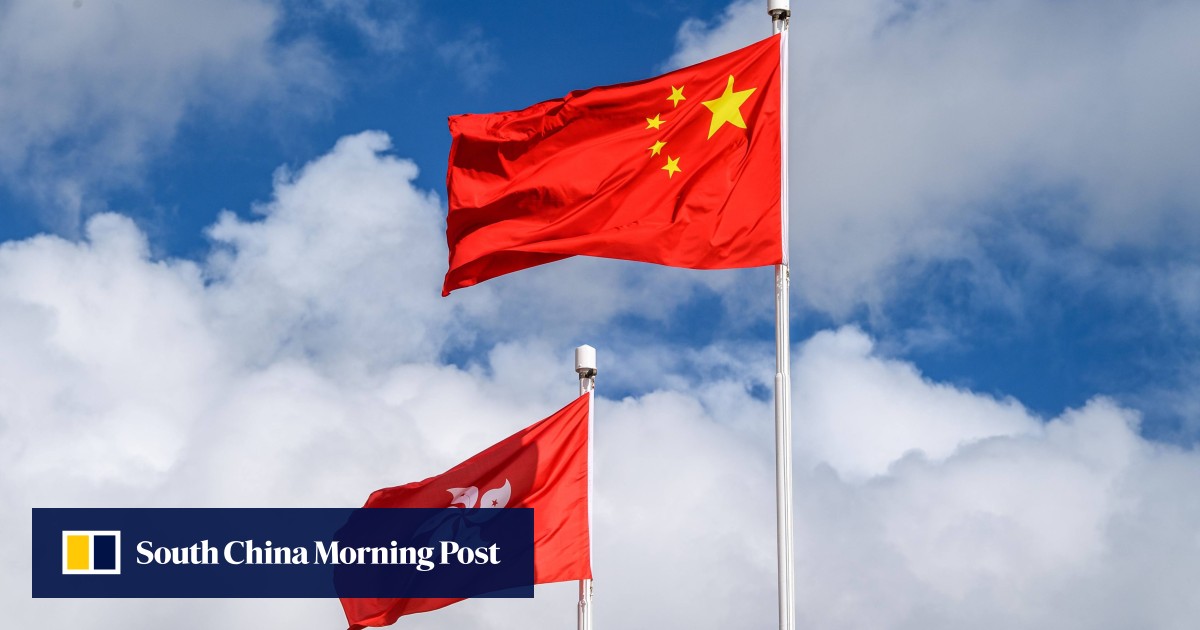The sixth-ranked Politburo Standing Committee member was referring to security legislation that the city is required to pass under Article 23 of the Basic Law, its mini-constitution.
“[Ding said] we must be 100 per cent [committed] in supporting the Article 23 legislation, [it’s] not acceptable with just 99 per cent,” So said, meaning there should be not the slightest hesitation.
Another CPPCC member, Leung Che-cheung, said the vice-premier said the focus could shift after the bill was passed.
“[Ding] said the legislation has to be completed as soon as possible for the sake of retaining Hong Kong’s competitiveness. Once [it is] completed, Hong Kong could focus on developing its economy and improving livelihood,” Leung said.
Attendees said the state leader raised the topic of the bill’s swift passing towards the end of his speech.
His remarks indicated the security bill could be passed “in a month or two” in the local legislature, said Leung, who is a former lawmaker.
Hong Kong wrapped up a one-month public consultation on the security law last Wednesday, with authorities saying 98.6 per cent of the 13,489 submissions voiced support for the legislation. A full draft of the proposed law has not yet been released.
Another CPPCC delegate, Professor William Wong Kam-fai of the Chinese University of Hong Kong, said Ding also asked the city to advance its internationalisation as it strived to consolidate and enhance the development of “eight centres” outlined in the country’s 14th five-year plan.
The five-year plan supported Hong Kong’s development as a centre in eight key areas: finance; innovation and technology; East-meets-West cultural exchange; trade; international shipping; aviation; legal and dispute resolution services in the Asia‑Pacific region; and intellectual property trading in the region.
Hong Kong leader vows to enact domestic security law ‘as soon as possible’
Hong Kong leader vows to enact domestic security law ‘as soon as possible’
“Ding said Hong Kong should bear in mind what makes it unique – its international ties. Hong Kong should continue to work on this front as a major way to contribute to the nation’s overall development,” Wong cited Ding as saying at the meeting.
The delegate said Ding highlighted the city’s role as a finance and technology centre, and had urged Hong Kong to give full play to its strengths.
CPPCC member and Hong Kong tycoon Jonathan Choi Koon-shum told the Post that the state leader also told delegates to safeguard the city’s “free, open and regulated” business environment while maintaining a high level of openness to external markets.
“The most important thing Ding said is that Hong Kong should align itself with the overall development of the country, especially the Greater Bay Area and the Belt and Road Initiative. These are the directions for Hong Kong’s development and economic growth,” Choi said.
The bay area is Beijing’s plan to integrate Hong Kong, Macau and nine mainland cities in Guangdong province into an economic powerhouse, while the Belt and Road Initiative is a push to link economies in Asia, Europe and Africa into a China-centred trade network.
The members told the Post that Ding underscored Beijing’s steadfast support in the “one country, two systems” governing principle, which had been “fundamentally good” to the city, country and nation.
Chinese premier urges Hong Kong to ‘play to its strengths’ under bay area plan
Chinese premier urges Hong Kong to ‘play to its strengths’ under bay area plan
Also present at the session were former Hong Kong leader Leung Chun-ying, now a CPPCC vice-chairman, and Hong Kong and Macau Affairs Office director Xia Baolong. The latter recently concluded a seven-day fact-finding visit to Hong Kong.
According to Wong, at least three Hong Kong CPPCC members shared their thoughts with Ding at the meeting, with topics covering the city’s role in the bay area, ways to boost the economy and how to turn it into a cultural hub for both the West and East.
CPPCC member Irons Sze Wing-wai, the honorary president of the Chinese Manufacturers’ Association, cited the vice-premier as saying the central government fully acknowledged the work of Hong Kong authorities.
The state leader also specifically highlighted the accomplishments of Chief Executive John Lee Ka-chiu, saying he had shouldered a “historical responsibility” and performed his job well, according to Sze.
CPPCC chairman Wang Huning, known as a long-time aide to Chinese President Xi Jinping and the ruling party’s ideology chief, did not attend the meeting this year, unlike in 2023.
He raised “four hopes” to the delegation in the 2023 meeting: safeguard national security, develop the economy, advance the building of the bay area and find new momentum for development.
He had also asked delegates to make use of their networks to tell “good stories” about the one country, two systems principle.






)
